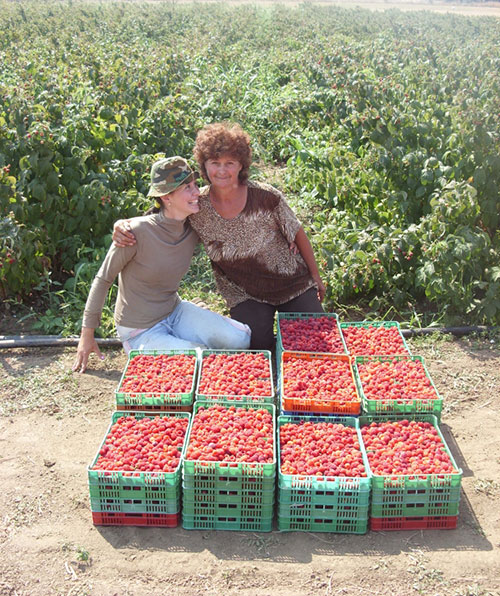AgriCOOPDS initiative has an important component that targets women and young people, family farmers affiliated to trade unions or family farming organisations on all 5 continents.
OBJECTIVE: to get more young people and women to become members of existing cooperatives in their region, that would strengthen the cooperatives themselves and contribute to improving the quality of life of young people and women in family farming.
Gender equality, women’s rights and family farming
Gender equality and the empowerment and rights of women are cross-cutting issues in Agenda 2030. It cannot be denied that all the SDG permeate the lives of women and girls around the world, and that rural women play a key role in achieving the goals of ending hunger, achieving food security, improving nutrition and promoting sustainable agriculture, as well as achieving the goal of gender equality and empowerment of women and girls.
It is important to bear in mind that precisely because of the presence and role of women in family farming, the global food and economic crises, as well as the effects of climate change, have a greater impact on them, since in many cases they are responsible for sustaining the well-being of their families, through nutrition, education and health (United Nations Inter-Agency Task Force on Rural Women, 2012).
The SDG agenda provides an important framework for making visible the need for social changes related to gender inequality in rural areas. To this end, it is important to establish disaggregated, gender-sensitive indicators that make it possible to monitor the various targets and indicators. This will provide inputs for the design of public policies that take into account this dimension, which otherwise remains invisible.
Women and cooperativism

Co-operatives play an important role in overcoming the barriers faced by women and supporting family farming. The
re are cases that show that efficient cooperatives have the capacity to empower their members economically and socially and to create sustainable employment t
hrough equitable and inclusive business models that are more resilient to crises (Agricultural Cooperatives and Gender Equality. FAO, 2011).Shared and programmed distribution of products improves access to markets. Collective bargaining power increases both in input markets and at the point of sale. Access to information, knowledge and capacity building, as well as active participation in decision making determines the empowerment of cooperative members. In general, the services provided by cooperatives, under equal conditions, guarantee access to resources and rights and create opportunities to increase the quality of a dignified life.
Therefore, the inclusion of women in family farming cooperatives would make a relevant contribution to gender equality.







